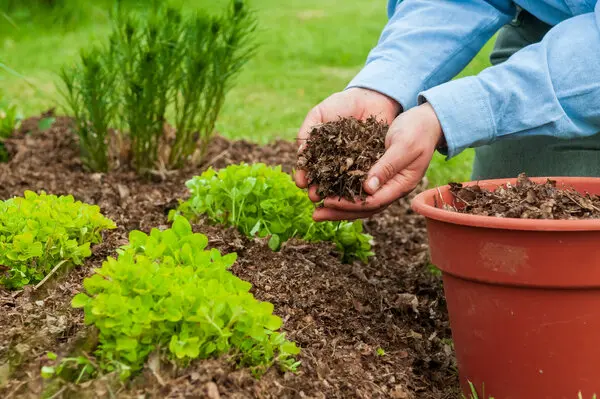Mulching is a vital practice in gardening that offers numerous benefits for the health and beauty of your plants. It involves placing a layer of material on the soil surface around your plants. In this post, we will explore the importance of mulching and the advantages it brings to your garden.
- Moisture Conservation:
One of the primary benefits of mulching is its ability to retain moisture in the soil. By covering the soil with a layer of organic or inorganic mulch, you can significantly reduce water evaporation. This helps to maintain a consistent moisture level in the soil, ensuring your plants have access to adequate water during dry periods. Additionally, mulch prevents rainwater from splashing onto plant foliage, minimizing water loss through runoff.
- Weed Suppression:
Mulching acts as a natural weed suppressant, inhibiting the growth and spread of unwanted weeds. The layer of mulch creates a barrier that prevents sunlight from reaching weed seeds, inhibiting their germination. This reduces the need for manual weeding and helps to maintain a cleaner and more visually appealing garden. For effective weed control, ensure the mulch layer is thick enough, usually around 2-4 inches.
- Soil Temperature Regulation:
Mulch plays a crucial role in regulating soil temperature, particularly in extreme weather conditions. During hot summer months, mulch acts as insulation, keeping the soil cooler and preventing heat stress on plant roots. In colder seasons, it provides insulation against frost and helps to maintain a more stable soil temperature, protecting plants from temperature fluctuations.
- Nutrient Enrichment:
Organic mulches, such as shredded leaves, compost, or wood chips, gradually break down over time, releasing nutrients into the soil. As the organic matter decomposes, it enriches the soil with essential nutrients, improving its fertility. This natural fertilization process supports the healthy growth and development of plants, reducing the need for additional synthetic fertilizers.
- Erosion Control:
Mulching plays a crucial role in preventing soil erosion, especially on sloped or exposed areas. The layer of mulch acts as a protective shield, reducing the impact of heavy rainfall and preventing soil runoff. This helps to maintain the integrity of your garden beds, retain valuable topsoil, and prevent nutrient loss.
- Improved Soil Structure:
Over time, mulching contributes to the improvement of soil structure and overall soil health. As the organic mulch decomposes, it encourages the growth of beneficial soil organisms, such as earthworms and microorganisms. These organisms enhance soil aeration, drainage, and nutrient cycling, creating a healthy and fertile soil environment for plants.
Conclusion:
Mulching is a beneficial practice that offers a range of advantages for your garden. From conserving moisture and suppressing weeds to regulating soil temperature and enriching the soil with nutrients, mulching plays a vital role in maintaining the health and beauty of your plants. Choose the appropriate type of mulch for your specific needs and apply it consistently to reap the rewards of this simple yet effective gardening technique. So, grab your mulch and get ready to give your garden a healthy and vibrant boost!

